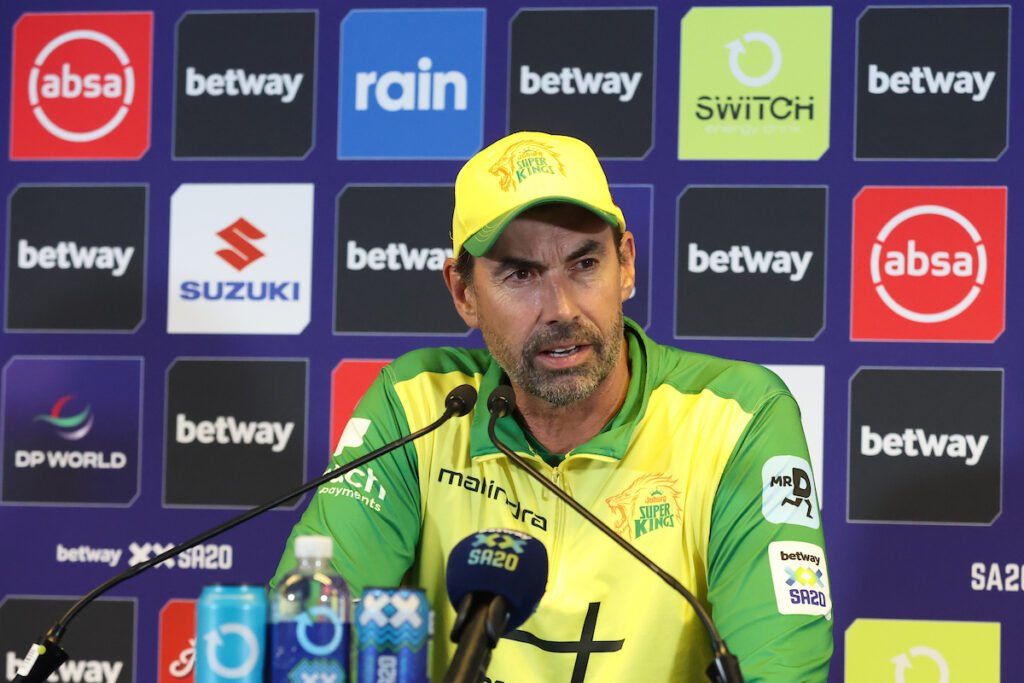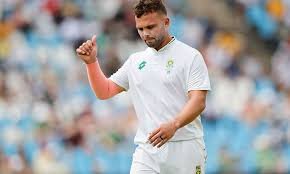Many metres of newsprint devoted to why JSK can’t make an SA20 final … 0

Photo: Arjun Singh/SportzPics
In the old days, many metres of newsprint would have been used to try and answer the question of why the Joburg Super Kings, despite finishing in the top four of all four editions of the SA20, have not yet been able to proceed to the final.
These days, the post-mortems will mostly be done in digital form, computer codes leading to text on some kind of screen.
The Joburg Super Kings’ 2026 campaign came to an end at SuperSport Park on Thursday night as they were well beaten by 36 runs by the Paarl Royals in the SA20 Eliminator. Once again they had fallen short and coach Stephen Fleming, at the helm for all four tournaments, admitted to an “empty feeling”.
Having won the toss and sent Paarl Royals in to bat, but allowing them to post a fine total of 210 for five, and then slumping to 103 for six in reply, it is not that difficult to pinpoint where this season’s push for the final was derailed.
Especially when one considers the Super Kings went into their last fixture without their regular captain, Faf du Plessis, and experienced stars like Rilee Rossouw, Reece Topley and Donovan Ferreira. Injuries and the comings-and-goings of players meant 17 different people took the field for them during the season, so they never really became a settled outfit.
“We’ve had players down, and experienced ones at that, which meant there were guys who had to play at a level they have never been at before and it was asking a lot of them to rise to the challenge. They didn’t respond tonight, but I’m proud of the way they stepped up in Paarl to get into the playoffs,” Fleming said after the loss.
Even though they conceded 210 for five, Joburg Super Kings were by no means out of the contest at the midway point.
It was a fine effort by Paarl Royals, but a curious innings because even though such a big score in a knockout match is always daunting, one felt the Boland side had left a few runs on the table.
Lhuan-dre Pretorius was the top-scorer with a commanding 51 off 34 balls, but he did not seem to have hit top gear yet, seemingly setting his stall to bat deep, when he ran himself out (helped by an excellent piece of out-fielding by Matthew de Villiers) in the 11th over.
There were four other very useful contributions in the Paarl innings: Kyle Verreynne lashed 30 off 15 balls at the start to ensure they had a brilliant powerplay, scoring 61 for one in the first six overs; Dan Lawrence kept the momentum going and had set up a big finish with his 36 off 23 deliveries; and Sikandar Raza (35 off 19) and Asa Tribe (30 not out off 16 balls) provided the big finish with 62 runs scored off the last five overs.
But when the SuperSport Park pitch is as true and well-paced as it was on Thursday, no total is safe if a batter gets in, stays in and goes deep; if one of the Super Kings could score a quickfire 80 and the rest bat around him, then 211 was certainly not out of reach.
But the brilliant Royals attack, led by Hardus Viljoen (4-0-24-3), gobbled up four wickets in the powerplay and some patrons had not yet finished their dinner when the result became fait accompli with the dismissal of Dian Forrester for just three leaving JSK on 103 for six after 13 overs, needing 108 runs off the last seven overs.
Wiaan Mulder deserves credit for showing plenty of fight as he stuck around for three-quarters of an hour to score 41 off 27 balls, while tailenders Duan Jansen (18* off 12) and Nandre Burger (17* off 11) helped themselves to 36 unbeaten runs off the last 23 deliveries.
But shorn of too many inspirational players, there was to be no miracle for Joburg Super Kings.

